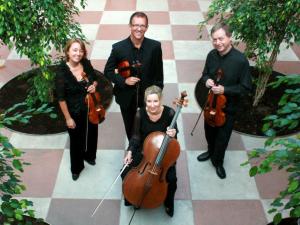
Four months ago our organisation, the Scottish Partnership for Palliative Care (SPPC) created a space on the web where anyone could post a brief message of remembrance about dead loved ones who remain important to them. Little by little, day by day, non-virally, that space has grown into a powerful reminder of the diversity and universality of loss, and a reminder too of the richness and solace of memories.
Wall of Remembrance
Our wall of remembrance is far from unique. A quick Google will find you a number of similar pages.
What can we deduce from these emergent phenomena? Are these new behaviours or simply traditional behaviours mediated through new technologies – granite headstones morphing into gigabyte graveyards? I don’t know, I’m no sociologist.
In Mexico remembering the dead all seems so public and straightforward – every year in November they mark El Dia Los Muertos – Mexican day of the dead. These two days are dedicated to remembering family and friends who have died. Graves are tidied and decorated, special meals are prepared, and people remember, respect and celebrate those who have died.
But what are our Scottish cultures and traditions? In pre-Christian times we had Samhain, a November festival during which places were laid at the meal table, to remember and honour dead ancestors. There are elements of Samhain in the subsequent Christian festivals of All Souls and All Saints, as well as in Halloween. But with the decline of organized religion and the explosion of hyper-commercialised trick or treating something important and valuable has surely been lost.
Of course many people have their own private ways of remembering people who have died, but in general, public acknowledgement is very limited. Maybe that is just how we are; just how it is in Scotland. It is just one more example of how in this country we shy away from thinking about and discussing issues relating to death. Does this really matter and should it change?
I think so.
People who’ve been recently bereaved often say they feel isolated because people didn’t know what to say or how to act towards them. And that silence can extend beyond the period of immediate grief, across the years when their loss may change, but remains real, as does their relationship with their loved one. And then there are the parents who’ve lost a child who tell of how difficult it is being unable to mention the name of that child for fear of the uncomfortable reaction they’ll get. That doesn’t seem right. We are a human community united by mortality if nothing else. Is a culture of silence closing off opportunities for mutual support?
In recent years, there has been a growing recognition of the importance of promoting culture change and public engagement relating to, death, dying and bereavement. Various terminologies are in use to describe relevant approaches, for example “public health approaches”, “compassionate communities” and “health promoting palliative care”. These are all related concepts, and attempts are being made to develop conceptual clarity regarding related terminologies. In their recent paper Bruce Rumbold and Samar Aoun welcome interest in health promoting palliative care, but suggest that there has been insufficient emphasis on a public health approach to bereavement.
They suggest that traditional approaches to bereavement are overly shaped by data from clinical encounters, and that not enough attention has been paid to bereavement as it is lived out in everyday life. They suggest that most people manage to live with and through bereavement without developing mental health problems, and that this is because their social and personal support mechanisms meet their needs. They suggest that palliative care services need to bear this in mind, and expend effort developing community capacity to support people who have been bereaved. The article also points to the importance of memorialisation in cultures, saying that rituals of remembrance build solidarity – they are ways of acting that transcend the struggle to find words of comfort.
To Absent Friends Wall
Against this backdrop of cultural change and enduring human need a new festival will take place in Scotland this year from 1st -7th November – a people’s festival of storytelling and remembrance, called To Absent Friends. The festival will be an opportunity for people to remember dead loved ones and tell stories about people who’ve died. It will provide an excuse to build upon the emergent creativity which can already be witnessed in phenomena such as sponsored events in memory of dead loved ones, Facebook and Twitter tributes when someone dies, and the growth in personalised and individualised funerals.
To Absent Friends is unprescriptive and completely open to individual interpretation. It is not an awareness week. It is not a fundraiser. It is not corporately owned. It will happen among friends, families and communities – people can mark the occasion – or not – in whatever way works for them. Participation might be private and individual, for example lighting a candle at home. It may be private but collective, for example attending a themed concert and thinking private memories. It may be individual and public, for example posting on an online wall of remembrance or it might be public and collective, for example cooking together with friends and family what was granny’s favourite recipe.
Early signs are that the festival has struck a chord and we are aware of numerous and varied events being enthusiastically planned. For example, on the Isle of Lewis, over 60s groups are getting together to do artwork, sing songs, eat traditional food and tell stories of people in the community who have died over the years. Care home residents in Biggar will spend an afternoon listening to music and sharing memories.
As well as grass roots activities such as these the Scottish Partnership for Palliative Care has teamed up with arts organisations to deliver some bigger events which will help to raise the national profile of the festival. The Royal Scottish National Orchestra are playing a concert in Glasgow.
RSNO String Quartet
In Edinburgh there will be a lunchtime organ recital in the Usher Hall.
Colin Gray – Heaven and Hull
Together with the Luminate Festival, To Absent Friends brings an exhibition by photographer Colin Gray. And story teller Margot Henderson will be telling tales of Absent Friends as part of the Scottish International Storytelling Festival.
Now, I have been writing this with my professional hat on. And maybe you’ve been reading this with your own professional hat on. But maybe you’d like to take that hat off and get involved in the festival? It is not too late to be in right at the start of something! Please have a look round the To Absent Friends website. (See if you can spot me, aged 5, on my grandpa Sidney’s lap!). Have a look at the events, at the ideas and suggestions. See if anything strikes a chord. Tell us your own ideas. Help to establish a new national institution. Be the change you want to see.
Mark Hazelwood is Chief Executive of the Scottish Partnership for Palliative Care.





